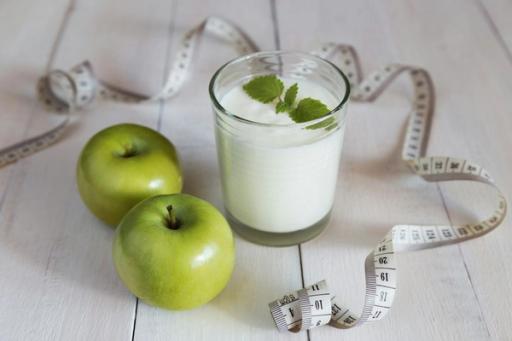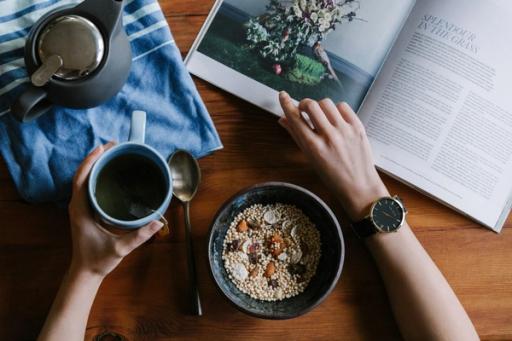
After a long day at work, you want a satisfying meal that helps you unwind. But if you're trying to lose weight, you also want to ensure that dinner doesn't ruin your progress. The problem is, you don't know how many calories dinner should be or how calories are measured. That's where this article comes in. By reading on, you'll learn how to plan dinners that help you reach your weight loss goals, ensure steady progress, and don't sacrifice satisfaction or nutrition.
Cal AI's calorie tracker simplifies determining how many calories dinner should contain for your weight loss goals. With this tool, you can effortlessly plan dinners that align with your goals so you can enjoy your meals without the stress of ruining your progress.

A calorie is a unit of measurement for energy in a food or drink. Your body needs energy to fuel daily functions, such as:
Calories play a crucial role in maintaining, losing, or gaining weight. When the body has sufficient energy from calories, it can perform optimally. If you consume fewer calories than your body needs to perform its functions, it will use alternative energy sources, such as fat and muscle, to fuel its operations.
This process can help a person lose weight. Conversely, when a person consumes more calories than their body burns, the excess energy is stored as fat, which can lead to weight gain over time.
Caloric intake refers to the number of calories consumed through food and beverages. When a person wants to lose weight, it’s paramount to understand caloric intake and how it affects the body. Eating a nutritious, well-balanced diet lower in calories than the body needs to maintain its current weight can help a person shed pounds.
Caloric expenditure indicates the number of calories your body burns throughout the day. You must create a caloric deficit to lose weight, meaning you should consume fewer calories than you burn. Calculating your Total Daily Energy Expenditure (TDEE) helps determine how many calories you should eat to maintain weight.
You can establish a caloric deficit to support your weight loss objectives. When you eat more calories than your body burns, they get stored as excess fat. As the National Heart, Blood, and Lung Institute notes, an essential part of a healthy eating plan is balancing your total calorie intake versus energy output.
Knowing the calorie content of your food can make it easier to maintain a healthy weight. According to the Cleveland Clinic, carbohydrates, fats, and proteins provide calories. Caloric needs are different for everyone, depending on:
The Academy of Nutrition and Dietetics states that the calories needed for adult women should range from 1,600 to 2,400 per day and 2,000 to 3,000 per day for men. If you're trying to lose weight, you must determine the amount of carbohydrates, fats, and proteins you can eat as part of your diet. Aim for the low end of the daily calorie range if you are primarily sedentary with little or no physical activity.
If you live a more active lifestyle, the high end of the range better reflects your needs. To slim down, reduce your daily calories. Since 3,500 calories equal about 1 pound of fat, the Mayo Clinic suggests cutting 500 to 1,000 calories daily to lose 1 to 2 pounds weekly.
Deciding how to divide your calories between breakfast, lunch, and dinner depends mainly on your lifestyle. If your morning is rushed with getting kids off to daycare, walking the dog, or leaving for a long commute, making breakfast a significant source of your day's calorie intake is complex. Grabbing a quick sandwich or salad for lunch is all they can fit into their daily routine.
Restricting your calories at breakfast and lunch may set you up for afternoon hunger pangs, which could result in excessive calorie consumption from:
Determining a daily plan with a well-balanced diet that includes all the food groups is essential. One option is to divide calories equally between meals.

When it comes to weight loss, calories count. What matters most is where those calories come from and when you eat them. Reducing your caloric intake can help create a calorie deficit to promote weight loss, and dinner can be a good place to start. Eating fewer calories at dinner can help some people lose weight.
That said, everyone is different, and some people may not do well with eating fewer calories at dinner. If you enjoy a large dinner and can make it work with your weight loss goals, then have it! Pay attention to the quality of your food choices and focus on portion control to avoid exceeding your calorie target.
Determining the ideal number of calories to consume at dinnertime can be a game-changer in your weight-loss efforts. After all, if you typically enjoy a more extensive, higher-calorie dinner, it can cause setbacks in your progress. That being said, besides the calorie count, you should also be mindful of what you put on your plate and portion control.
We spoke with a registered dietitian who explained how to determine the number of calories you should eat at dinner to lose weight. Thus, you can savor a delicious, nutrient-dense meal without derailing your efforts.
"Weight loss can be a challenging journey. There is too much information, and much of it is conflicting. The problem is that it does come down to what and how we eat [daily]," explains Destini Moodi, RD, CSSD, LD, a registered dietitian specializing in sports performance, body composition changes, and injury recovery from Top Nutrition Coaching "Dinner tends to be the hardest because it is at the end of the day, we are tired, want to have something that everyone around will like and will help with weight loss goals. On the surface, this seems like a monumental task. It does not have to be."
You first need to know your daily calorie goal to identify your dinnertime calorie goal. Finding an online calorie calculator is a great tool to determine your baseline. "The more questions that are asked the better to determine a calorie amount to meet your goals," says Moody. "Once you have this number, divide it by three. This is the number of calories to have at each of your three main meals. For example, if you are trying to get 1500 calories per day, each meal should contain 500 calories per day."
If you want to lose weight, it's best to evenly spread out your calories throughout the day so you can burn them via exercise and physical activity. If you save a solid chunk for dinner, there's not much time to burn those calories between your last meal and bedtime. "Once you have your baseline of calories per meal, you can plan accordingly," Moody stresses. "[While] dinner can still be your family's favorite food, portion sizes become important to avoid exceeding caloric intake."
Eating most of your calories earlier in the day rather than at dinner may be more beneficial if you're trying to manage your weight. In August 2016, the American Journal of Clinical Nutrition published a small 12-week study comparing the effect of a high-calorie lunch with that of dinner. The researchers found that eating more calories at lunch than later in the day led to more significant weight loss and improved insulin resistance in overweight women.
Another study, published in the International Journal of Obesity in April 2013, used 420 participants to evaluate the role of food timing in weight loss. Subjects who consumed most of their calories before 3 p.m. lost more weight over 20 weeks than those who ate later. Both groups consumed similar total calories throughout the day. Other studies suggest that eating most daily calories at dinner doesn't affect body weight.
For example, the British Journal of Nutrition published a meta-analysis in October 2017, which searched databases for studies comparing the relationship between weight changes and eating dinner. Four studies showed a positive association between body mass index and dinnertime meal consumption. Five studies showed no association, while one study showed an inverse association.
Overall, this meta-analysis suggested no difference in weight change between the small and large dinner groups. Researchers recommended that reducing evening dinner intake for weight loss is not substantiated by clinical evidence.
Eating dinner late at night may lead to poor digestion and affect your sleep. As a rule, avoid heavy or fatty meals as they may cause or worsen heartburn. If you're hungry, grab a light snack, such as:

Keeping a food diary helps you stay on track with your calorie counts. Writing down what you eat makes you less likely to stray from your goals. You can also use apps that automatically calculate calories for you.
Tracking calories before dinner can also help you plan for the meal. If you have a favorite recipe that is higher in calories, you can adjust your daily intake to accommodate it.
When it comes to dinner and calorie counts, portion sizes matter. A food scale and measuring cups can help you get accurate portion sizes to track your calories more effectively. Over time, you will become adept at estimating portion sizes and will not have to rely on the tools as much.
Not all foods are created equal when it comes to calories. To stay on track with your weight-loss goals, Moody recommends enjoying plenty of vegetables and lean proteins for dinner, as "these are the least amount of calories." If you base your meals on these foods, you can enjoy your dinner and meet your calorie targets.
While you can enjoy a variety of foods for dinner, be cautious with toppings and sauces, typically packed with excess calories. "Dinner does not have to be limited to chicken and broccoli (even though that is a good base to start with),"
Moody tells us. "You can achieve weight loss by knowing your total calories for the day, dividing it by three, and keeping to that number at dinner time. Have your family's favorite recipes, but measure your portions. Dinner can be enjoyable and help you achieve health and your weight-loss goals."
Meal prepping can significantly reduce the temptation to stray from your caloric goals, as it allows you to control ingredients and portion sizes. Dedicate a day each week to prepare and portion out your meals, ensuring you have various healthy options ready to go.
Adopting mindful eating techniques, such as:
It can enhance your dining experience and lead to better appetite regulation. This practice can help prevent overeating and make it easier to enjoy your meals.
Calorie counting is one of the most effective ways to achieve your health and fitness goals, whether you want to:
Tracking calories can be tedious and time-consuming, so most people avoid it. Cal AI transforms calorie tracking with our cutting-edge AI technology. Just snap a photo of your meal, and we'll do the rest.
Our app combines your phone's depth sensor with advanced AI models to analyze food volume, identify ingredients, and instantly calculate:
With 90% accuracy on visible foods and multiple tracking options like barcode scanning, food label recognition, and manual description for complex items like smoothies, we've made nutrition tracking effortless. Gone are the days of tedious manual logging calorie-tracking apps.
Whether scanning a full meal or a quick snack, Cal AI gives you accurate nutritional information in under 15 seconds. Plus, our AI learns from your feedback, continuously improving its accuracy. Stay on track with personalized insights and brilliant reminders. Cal AI makes achieving your fitness goals simpler than ever.
Track your calories with your camera with Cal AI's AI calorie tracker.